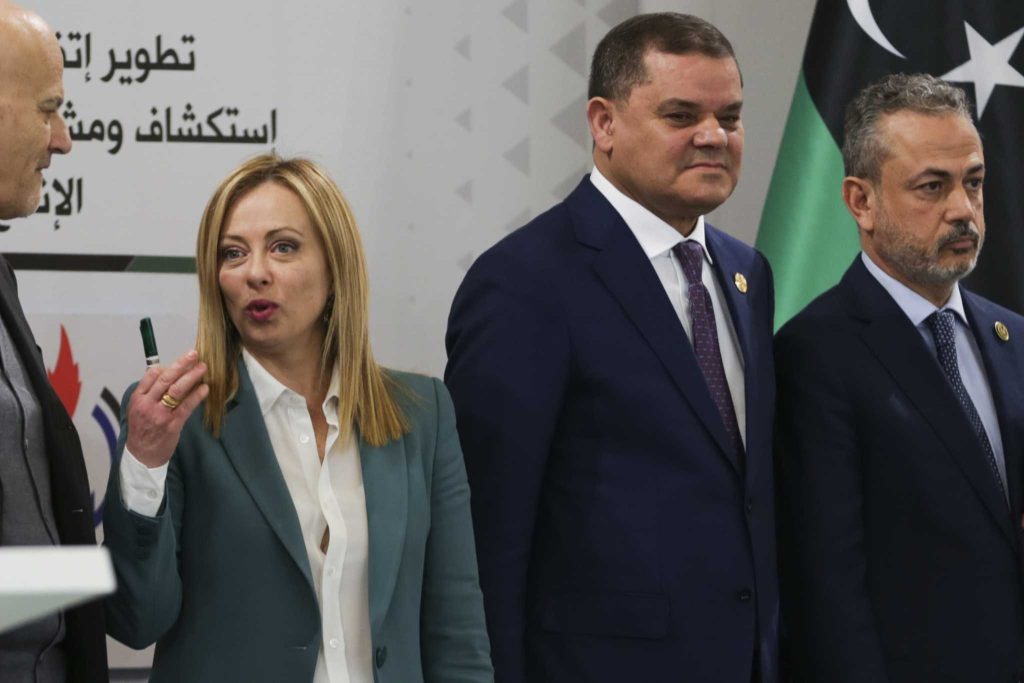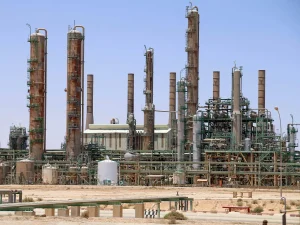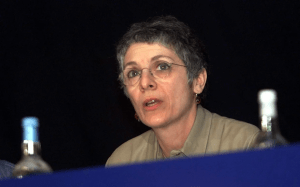Italy’s Prime Minister Seals Gas Pact in Libya

Italian Prime Minister Giorgia Meloni stands next to one of the Libya's rival prime ministers Abdul Hamid Dbeib, right, a during a conference in Tripoli, Libya, Saturday, Jan. 28, 20223. (AP Photo/Yousef Murad)
Barely days after hammering out energy deals with Algeria, the Italian PM is now doing the same with the Libyan government for natural gas although some pundits have speculated that while signing a deal with the Tripoli-based government might be one thing, getting the gas actually shipped to Italy may be another.
Italian Prime Minister Giorgia Meloni flew to Tripoli on January 28th where she is expected to agree a major gas deal aimed at boosting energy supplies to Europe despite the insecurity and political chaos in the North African country, according to Reuters.
Meloni is meeting Mohamed al-Menfi, the head of Libya’s three-man Presidency Council, and Prime Minister Abdulhamid al-Dbeibah, head of the internationally recognised Government of National Unity (GNU) in Tripoli.
According to public statements made this week by Libya’s National Oil Corp (NOC) chief Farhat Bengdara, the deal will involve $8 billion to produce up to 850 million cubic feet a day of offshore gas from the Mediterranean.
However, Libya’s parliament and major armed factions reject the legitimacy of Dbeibah’s government, raising fears of a new bout of conflict after more than two years of comparative peace.
European countries have increasingly sought to replace Russian gas with energy supplies from North Africa and elsewhere over the past year because of the war in Ukraine.
READ Libya: Arab states boycott Arab league meeting
Italy has already taken a lead in sourcing gas from Algeria, building a new strategic partnership there that includes investment to help state energy company Sonatrach reverse years of declining output.
Any agreements made in Tripoli may be undermined by Libya’s internal conflict, which has divided the country between rival factions who vie for control of government and dispute each other’s claims to political legitimacy.
Underscoring the political divisions in Libya, Dbeibah’s own Oil Minister Mohamed Oun rejected any deal that NOC were to strike with Italy, saying in a video on the ministry website that such agreements should be made by the ministry.
NOC chief Bengdara was appointed last year by Dbeibah, whose own interim government was installed in 2021 through a UN-backed process.
The eastern-based parliament and factions that support it said early last year that the government was no longer legitimate, rejecting both the appointment of Bengdara and deals that Tripoli has struck with foreign states.
Agencies
Want to chase the pulse of North Africa?
Subscribe to receive our FREE weekly PDF magazine













